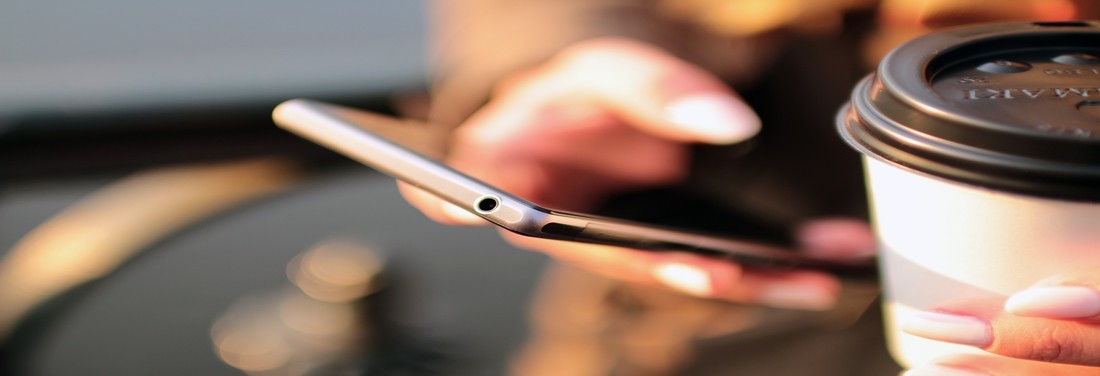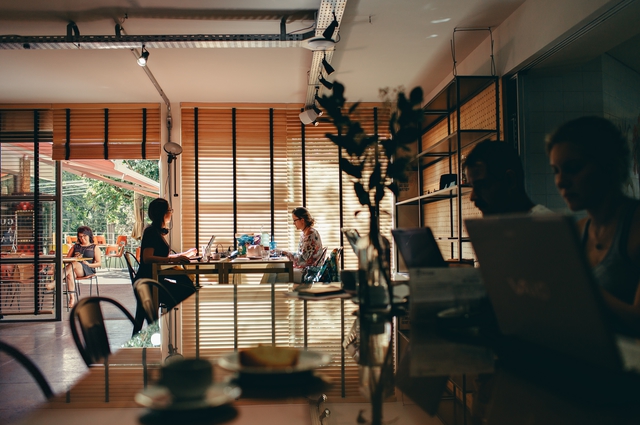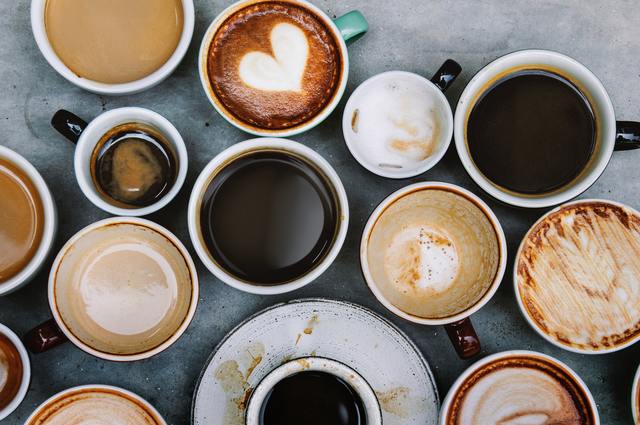Sustainable Schemes: Coffee Houses That Care
It is safe to say that the world loves coffee, with Brits alone drinking a staggering 95 million cups per day. The world’s “second-most tradable commodity after oil” has become an essential ritual for people across the globe, and it shows no signs of slowing down. If we were to put a price on its worth, it would probably be around £3.9 billion (since that’s the figure Coca-Cola recently bought out Costa Coffee for).
The Power of Commercial Coffee
People will use any excuse to feed their coffee addiction, with articles proclaiming it to enhance fertility and contribute to a longer life. The popular beverage is enjoyed globally, with Europe sitting firmly in the top spot as the biggest consumer of coffee. Despite the obvious markup on a commercial cup of coffee, 46% of coffee was consumed outside of the home in 2016, which might suggest its social role.
But is our coffee addiction insidiously destroying the environment? And, if it is, how can we stop it?
Environmentally Exposed
Recently, coffee consumption has been called out all over the media. Perhaps the recently proposed plastic tax, which was spurred by jarring images of cup waste, is partly to blame. Insights on coffee cup recycling have shocked the nation, revealing that 99.75% of coffee cups are not recycled, due to the paper and plastic inner lining used for insulation.
What is already a bleak situation is expected to worsen, with increasing waste predictions of “a third more single-use coffee cups by 2030.” Local Leeds coffee company Cafe2U is calling commercial coffee houses out with its Green Coffee Month initiative, and it seems to be working.
Soulful Schemes
Responding to the concerning climate of coffee, some big names are making serious environmental changes.
- London City’s ‘Good to Go’ Scheme
Tim Mitchell, the cabinet member for Environment and City Management in Westminster, earlier announced: “Londoners’ love affair with the latte is creating a serious environmental problem.” Westminster Council and recycling company Veolia have responded by introducing a street-sweeping scheme, the goal of which is to recycle 500,000 coffee cups in the next year.
- Costa Coffee’s 2020 Goal
The major UK chain has pledged to recycle 500 million cups by the year 2020, which is equivalent to all of its used takeaway cups per year. The brand has promised to incentivise waste management companies by paying a supplement of £70 for every tonne of cups collected.
- Starbucks’ Straw Removal
In addition to the Seattle coffee provider’s £7 million pound investment into creating the world’s first 100 percent recyclable and compostable cup, Starbucks is also ditching its iconic green straws. Its effort to eliminate straws from cold beverages by 2020 has received criticism, however, with a reminder that the replacement will be a new lid that is larger than the straw itself. Starbucks defended its initiative, saying: “the strawless lid is made from polypropylene, a commonly-accepted recyclable plastic that can be captured in recycling infrastructure.”
- Dunkin Donuts’ Farmer Investment
Helping to protect the global coffee supply, Dunkin Donuts is raising awareness of the fact that the trade allows 25 million families who may be affected by climate change to make a living. Its donation of up to $2 million to World Coffee Research acts as a truly future-forward investment in supporting change.
What’s Next?
If we manage to fix the recycling waste problem by switching to environmentally friendly coffee cups that are biodegradable and compostable, what should we then shift our focus to? Most are in favour of covering costs for farmers, as, shockingly, “the New York Stock Exchange price for a pound of coffee is less than one dollar, which is below the cost of coffee production for a farmer.”
Coffee might be a favourite in many nations, but it is ridden with ethical concerns. Worryingly, the issue of reusable coffee cups is “just a drop in the ocean for efforts to save our seas”, according to the Guardian, which calls for more awareness to be raised about the environment.
Providers like Takeaway Packaging have created a wide range of eco-friendly food packaging, which attempts to tackle waste in the takeaway and fast-food sector in the UK. The £18.2 billion industry accounts for over 40,000 businesses in the UK, which, given the opportunity to switch to plastic-free products, would contribute hugely towards the new era that Annie Leonard, Director of Greenpeace USA, described as a time “that prioritises people and planet over profit and convenience.”
About the author: Adam Middleton became the Business Development Manager for Takeaway Packaging after a varied career in PR, shipping and marketing within the packing industry. With a Bachelor’s degree in Human Geography and a Masters in International Marketing, Adam has a keen interest in the environmental impact of consumerism.




Ross Phillips
Thought provoking and eye opening. Sometimes we forget the true impact of something that you assume to be so innocuous, like having a cup of coffee to takeaway. Sustainability and new thinking has to be the way forward